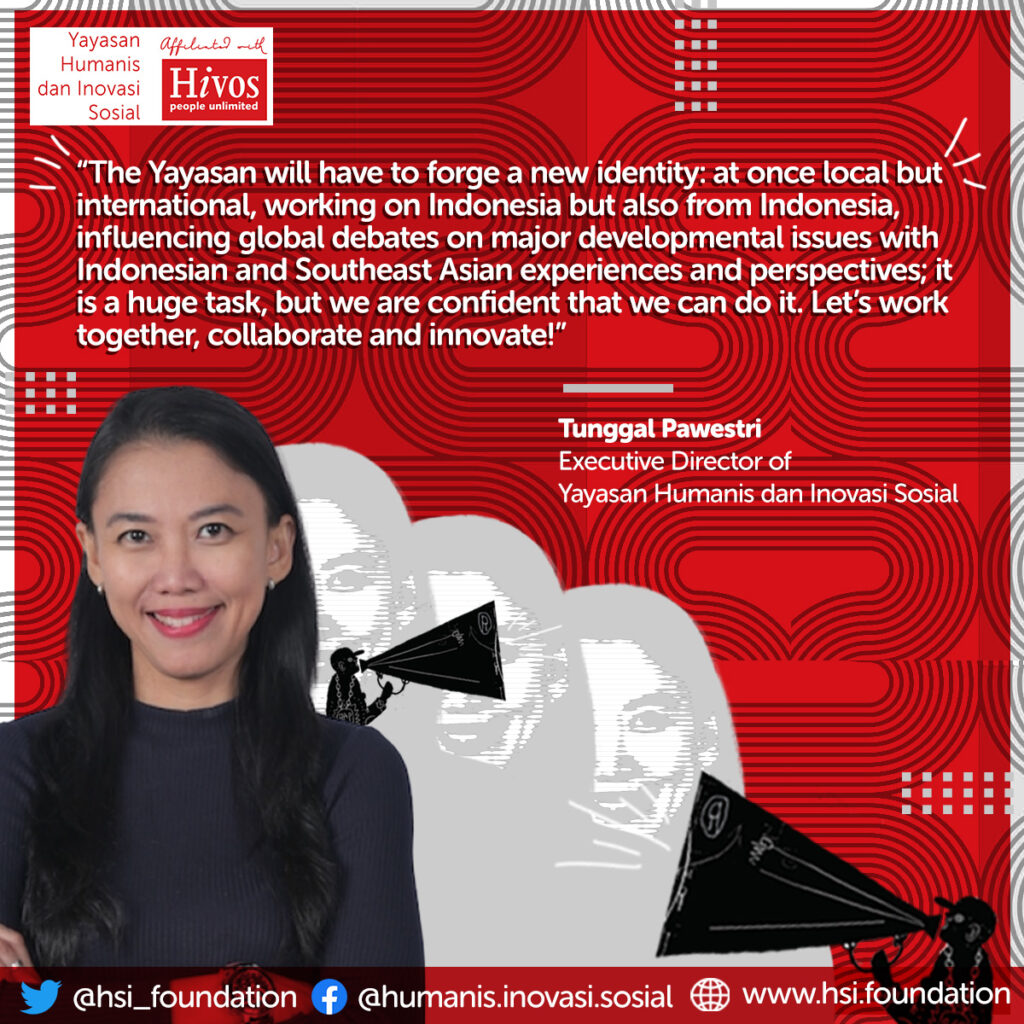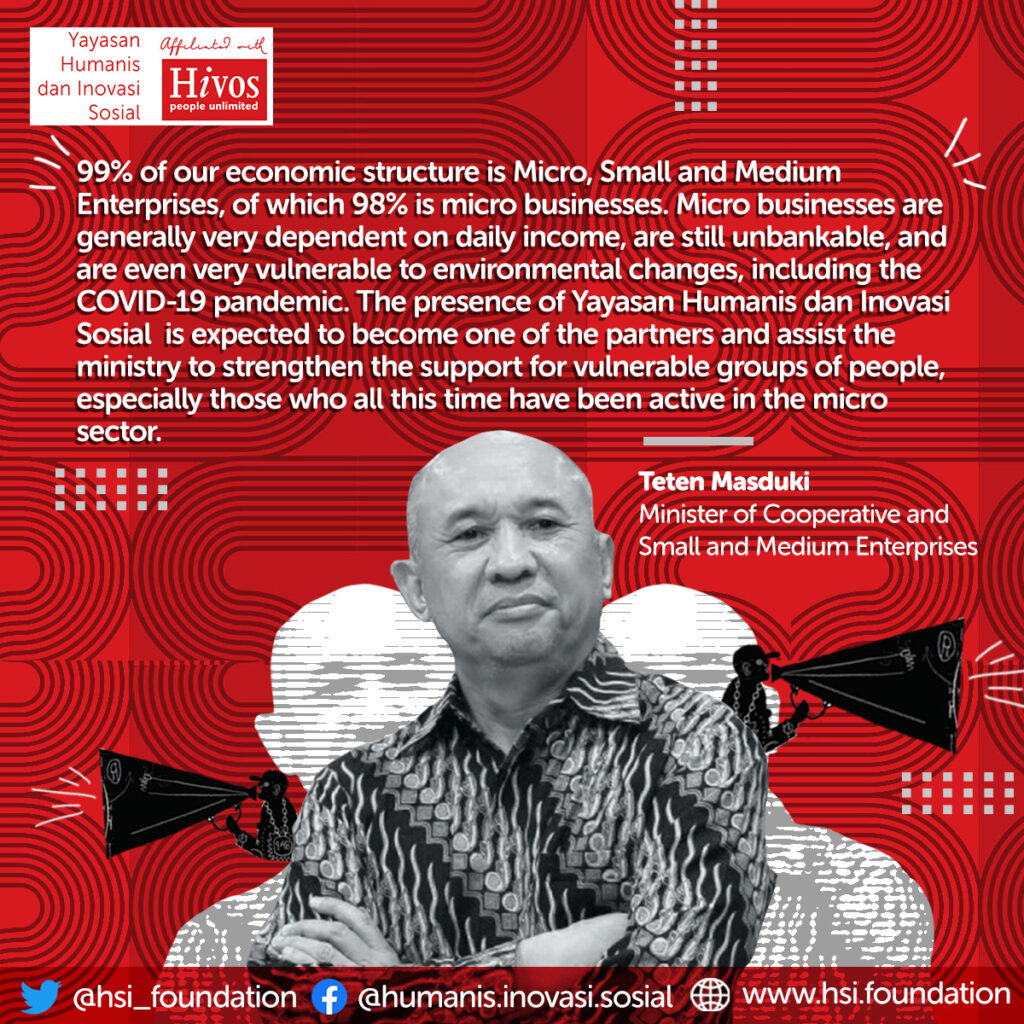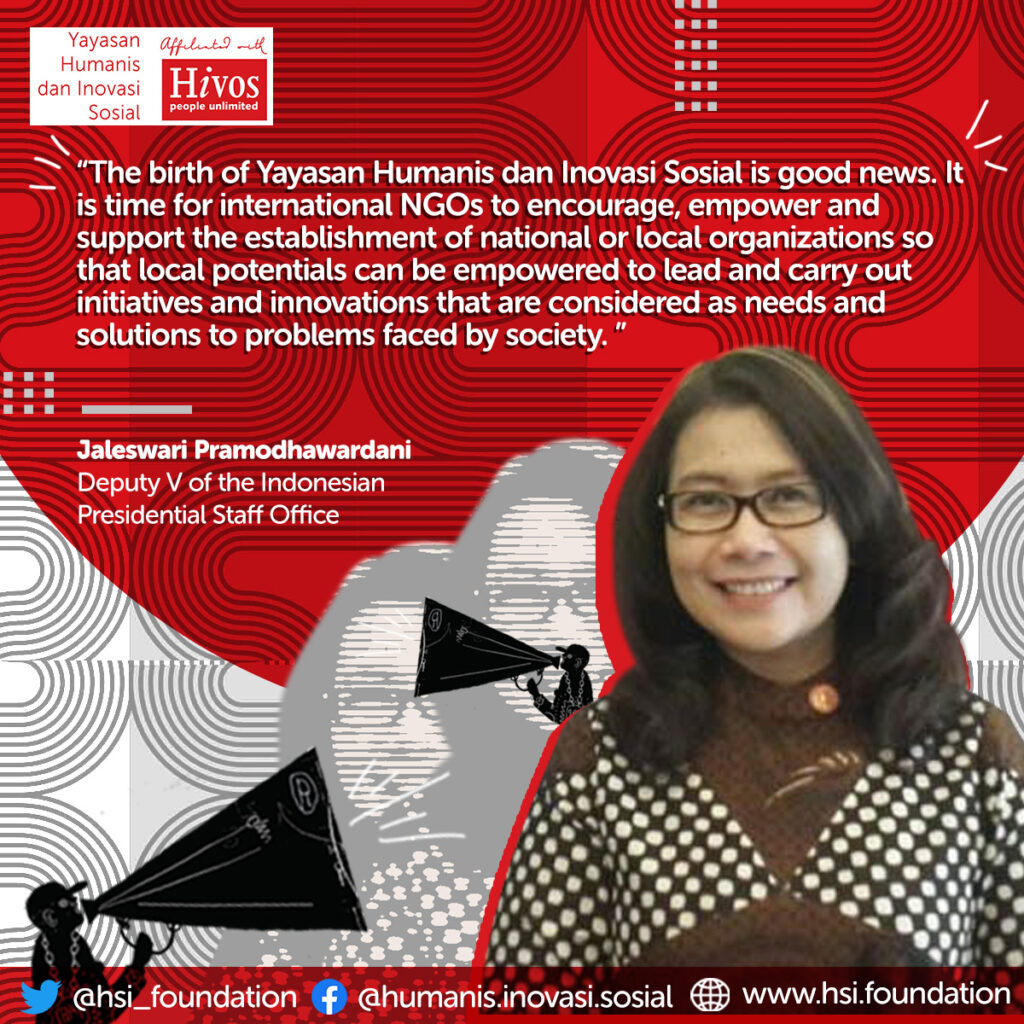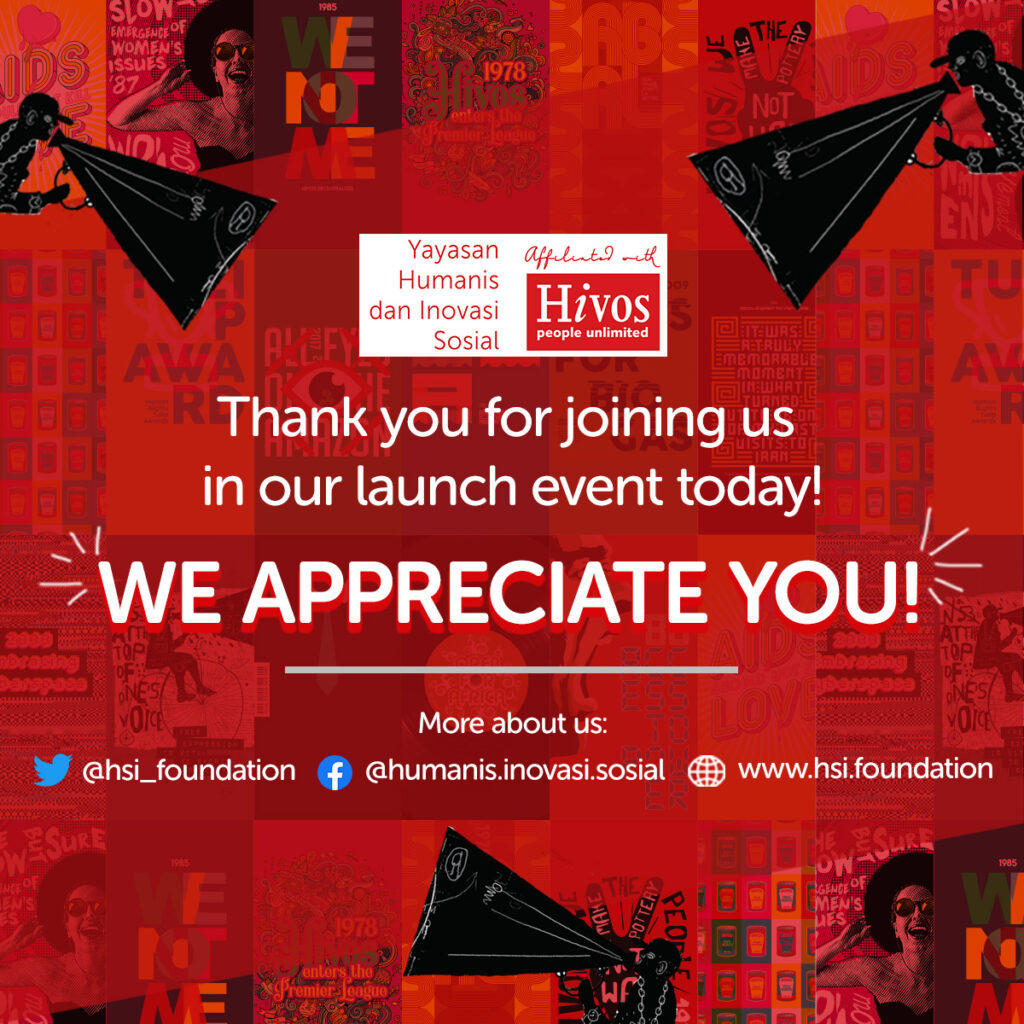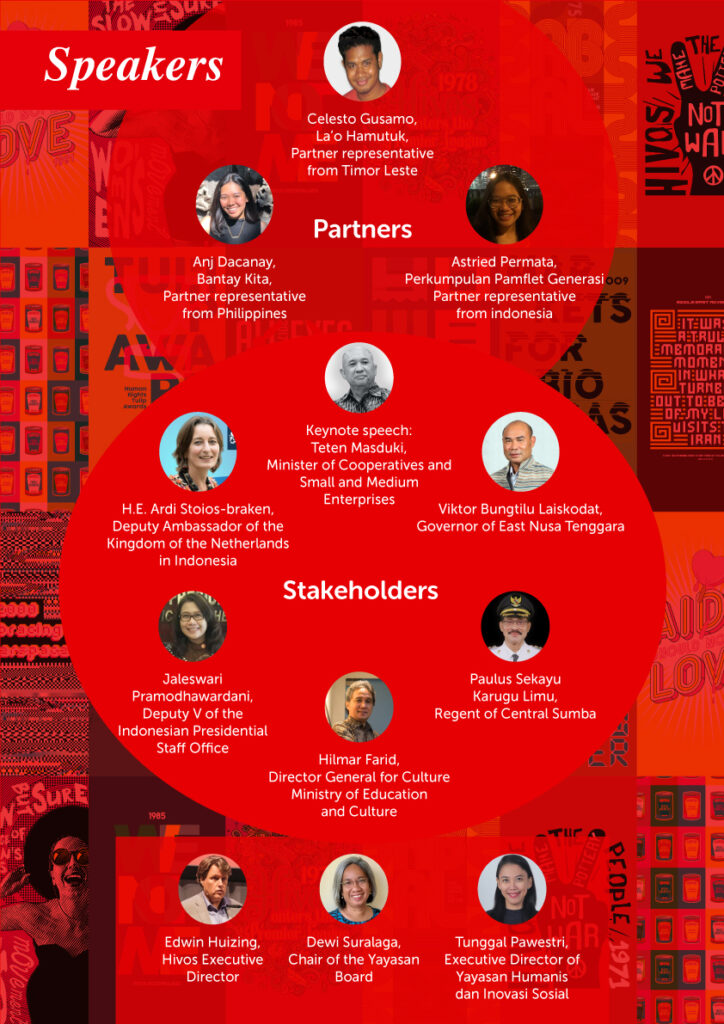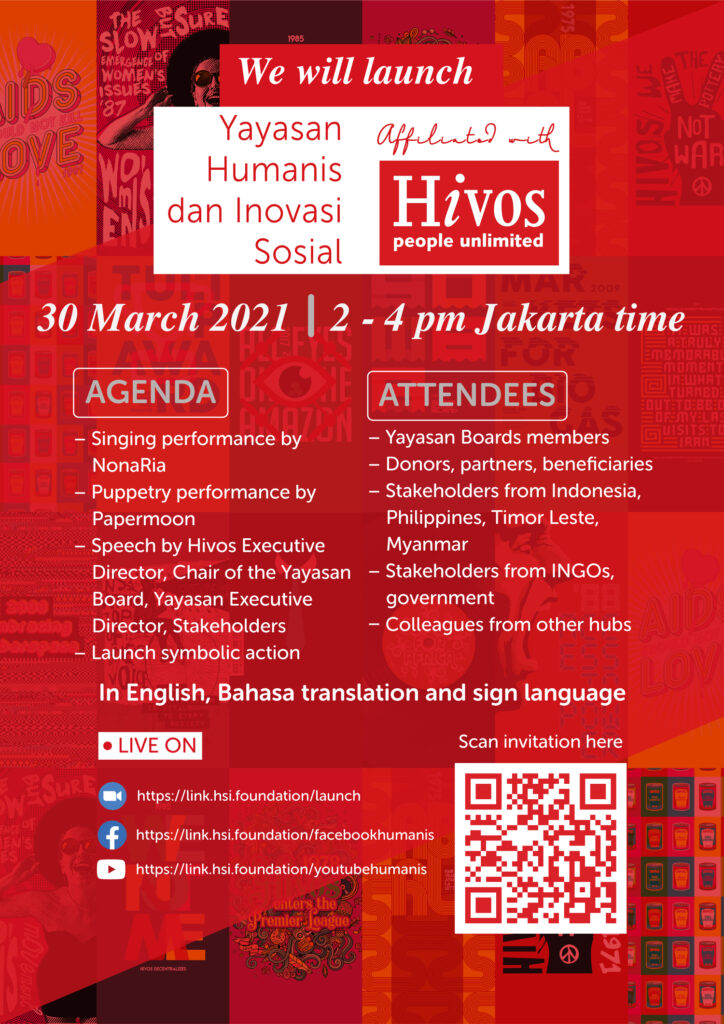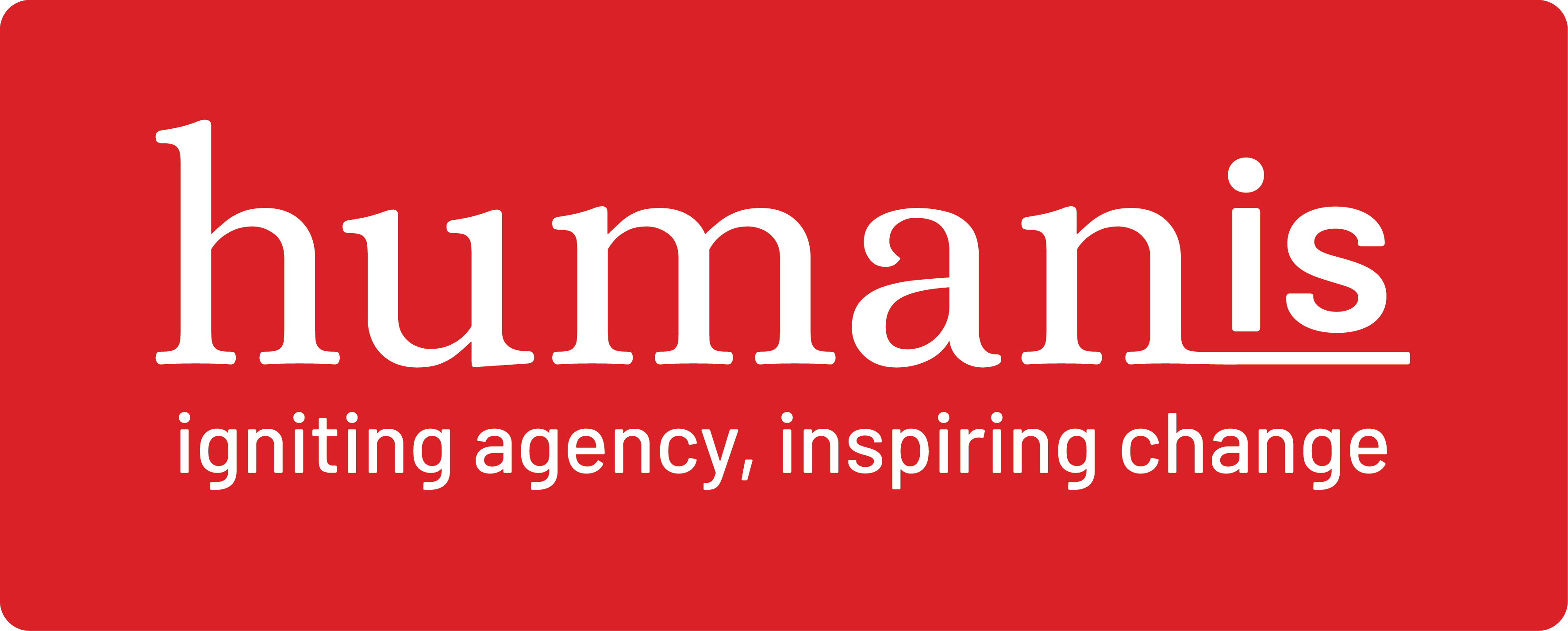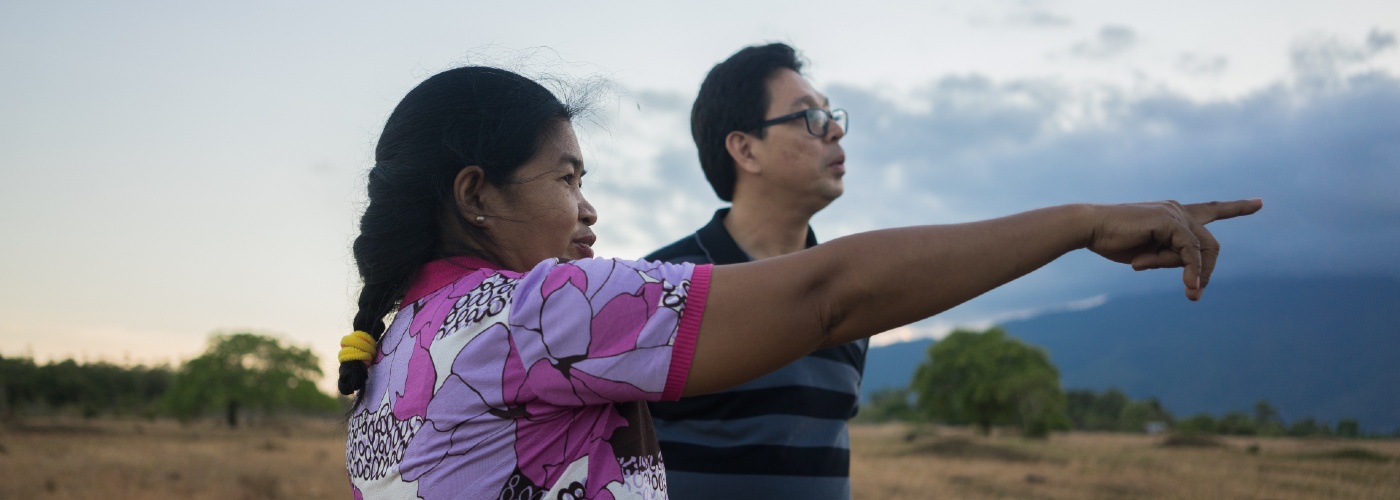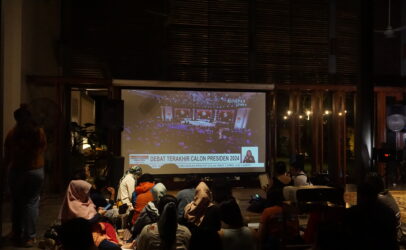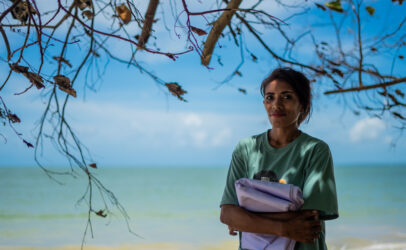In a new step to further decentralize its operations, Hivos is announcing the launch of the Yayasan Humanis dan Inovasi Sosial. The yayasan (foundation in English) is a Jakarta-based Indonesian organization that will take over Hivos’ activities in Southeast Asia.
The birth of the yayasan was spearheaded by several developments that came together over the last few years. Most prominently, the shaping of Hivos’ new strategic direction for 2021 to 2024. A driving force in this process was the ambition to strengthen our commitment to decentralizing operations and promoting local ownership of the partner organizations we work with.
“With the majority of board members and senior positions locally filled and led by Global South actors, I believe the yayasan can have even more significant impact.”
This resulted in a unique collaboration between Hivos and several like-minded Indonesian academics and civil society leaders tasked with setting up a new Indonesian organization. Together, we embarked on a path guided by Hivos’ mission and vision. Tunggal Pawestri, director of the new organization, explains: “The new Yayasan Humanis dan Inovasi Sosial will provide a platform for continuing to strengthen civil society at a much more local level. This is what Hivos has been working towards with its allies and partners for quite some time now. With the majority of board members and senior positions locally filled and led by Global South actors, I believe the yayasan can have even more significant impact.”
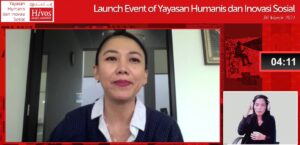
Edwin Huizing, Executive Director of Hivos, adds, “Together with our Indonesia staff we have celebrated many successes and had to overcome many challenges. We believe an organization committed to advancing the ability of each individual to shape a just, fair and sustainable society, while at the same time specifically promoting the rights of marginalized groups, has an important role to play in Indonesia. With Tunggal at the helm, we’re confident the Yayasan Humanis dan Inovasi Sosial will play that role.”

A three-year process
For the next three years, the yayasan will operate within the scope of Hivos’ Strategic Compass. It currently works in four countries – Indonesia, Philippines, Timor-Leste and Myanmar – and is focused on the same three impact areas as Hivos: Gender Equality, Diversity and Inclusion; Civic Rights in a Digital Age; Climate Justice.
After the three-year period the yayasan will become a fully independent organization. “Transferring Hivos programs to the yayasan continues to pose many questions,” Huizing explains. “The speed with which we’re able to do that depends on the varying demands of our donors. Honoring the commitments Hivos has made, we will ensure a timely handover of our programs.”
Both Pawestri and Huizing believe that setting up the yayasan will serve to inspire others. “We will use our experience in launching the yayasan to discuss with our donors how they can facilitate local ownership. Part of that is redefining the relation between donors, INGOs such as Hivos, and local or regional NGOs and CSOs.”
A brief history
Hivos was one of the first major Dutch NGOs that opened offices in the Global South to operate in the close vicinity of its civil society partners. Our belief in self-determination and local ownership goes back to our founding in 1968. In our first ever brochure, we wrote that “necessary changes should spring from communities themselves.”
After offices in Harare (1988), Bangalore (1991) and San José (1994), our fourth regional office was opened in Jakarta in 2004. Ever since, we have had the privilege to work with many courageous civil society leaders and their organizations, human rights defenders and champions in government.
We have always been – and continue to be – impressed by the resilience of the Indonesian people. A few months after we set up our office, the country was hit by the tsunami that devastated the coastline of Aceh province. Our first thoughts still go out to the massive number of people who lost their lives and to the survivors who still miss their loved ones to this day. For Hivos, it forced us to think about our role. We’re not an aid organization, but we were able to strengthen the role of local organizations in the rebuilding efforts by channeling many millions in the years after the disaster.
Some achievements
These are the type of organizations we have continued to partner with all this time. Together we have worked on the Sumba Iconic Island initiative, amongst many other projects. In 2010, we devised a revolutionary message: 100% renewable energy worldwide! Not only as a solution to the climate crisis, but also as an engine for development. On the Indonesian island of Sumba, we worked with villagers, local leaders, the government and the private sector to help provide the 650,000 inhabitants with renewable energy.
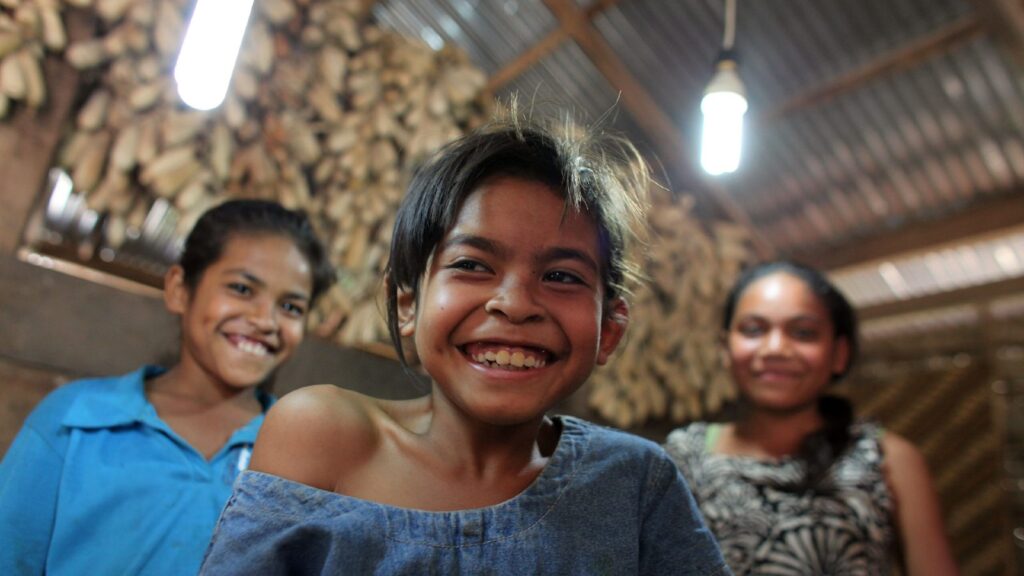
This is just one example of the achievements we have accomplished. Together with many stakeholders – including popular Indonesian TV chefs – we worked to foster local, healthy and sustainable food systems for producers and consumers. We have successfully promoted the principles of open contracting, standing side by side with our partners in, for example, the Philippines. There we joined forces with Bantay Kita, a great ally that advocates for transparency and accountability in the extractive industries and works with communities and Indigenous peoples impacted by mining.
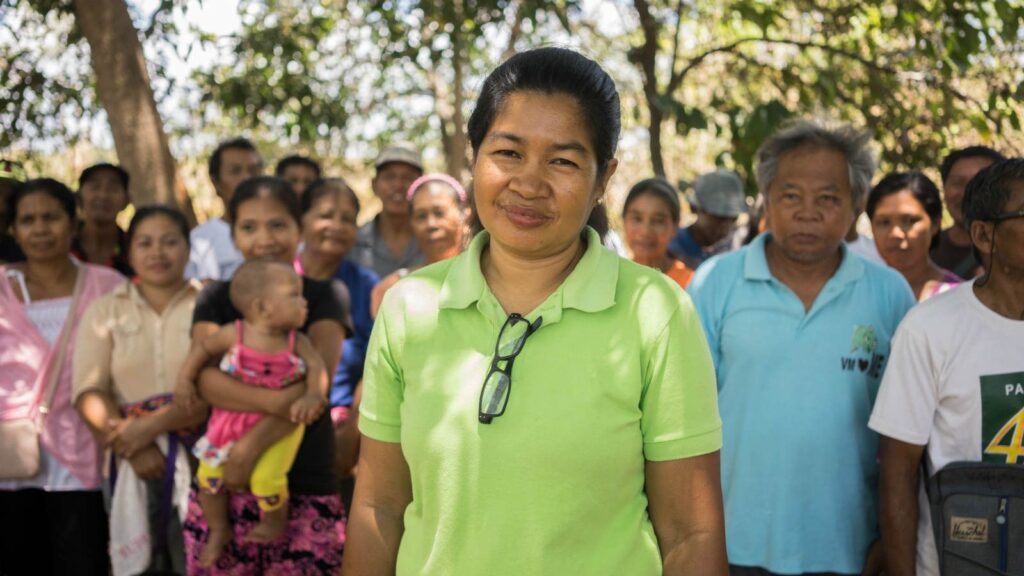
The lessons Hivos has learned along the way, and the reaffirmation of the absolute and undeniable importance of civil society, continues to guide our work today. Indonesia has suffered greatly due to the Covid-19 pandemic. In a new program funded by the European Union, we are once again involving civil society, community organizations, government and the private sector to address the consequences of the pandemic. The program is called Active Citizens Building Solidarity and Resilience in Response to Covid-19. We hope those three words – Citizens, Solidarity and Resilience – will continue to inspire the yayasan’s work for years to come.
